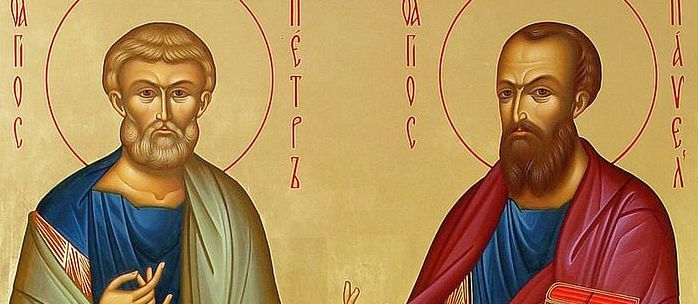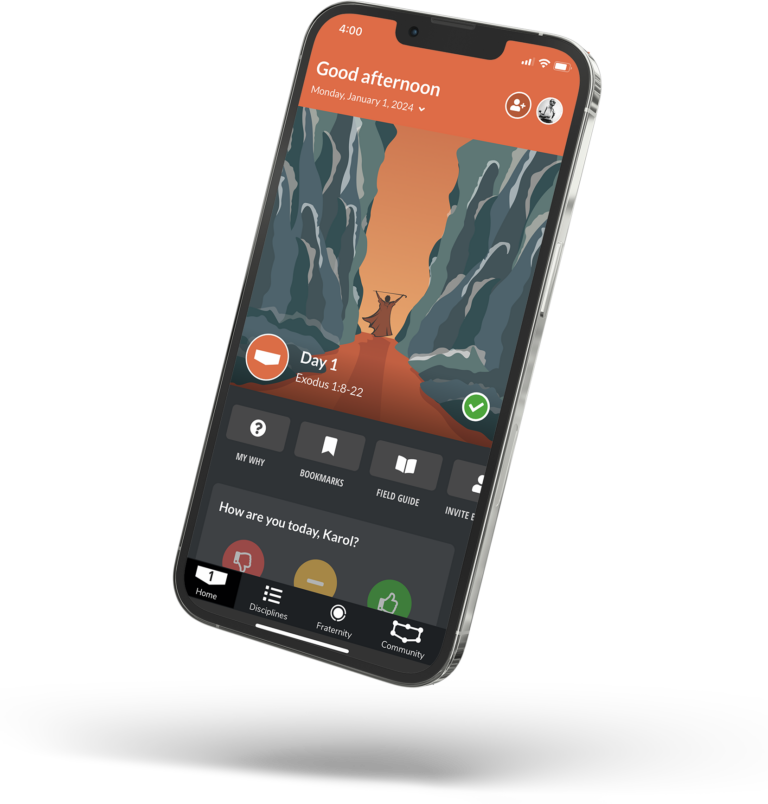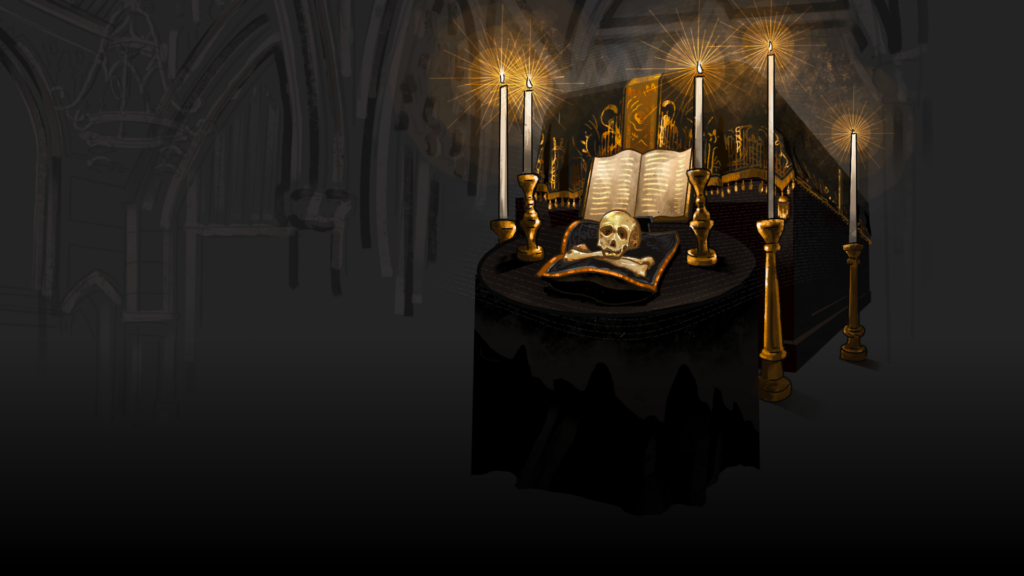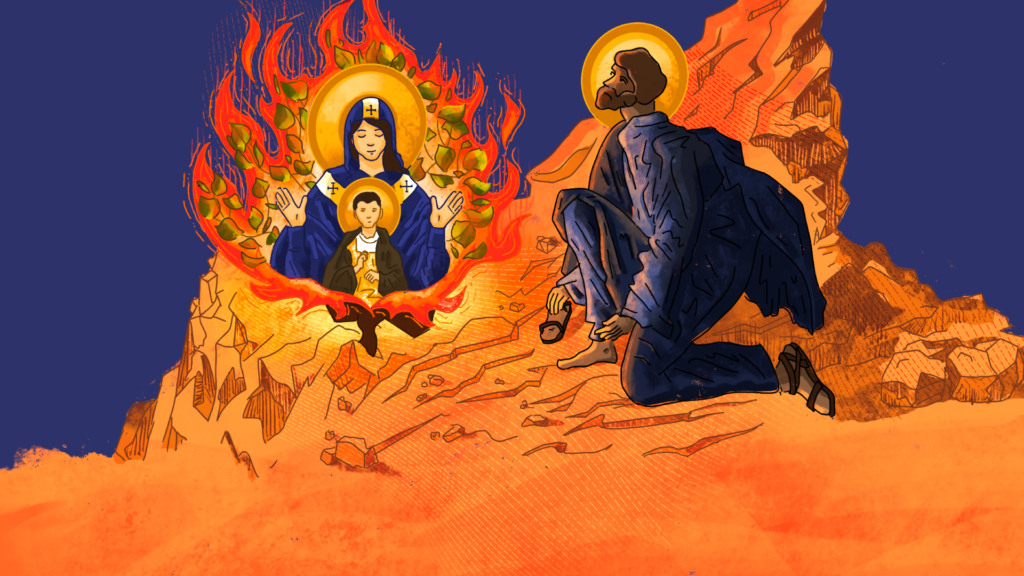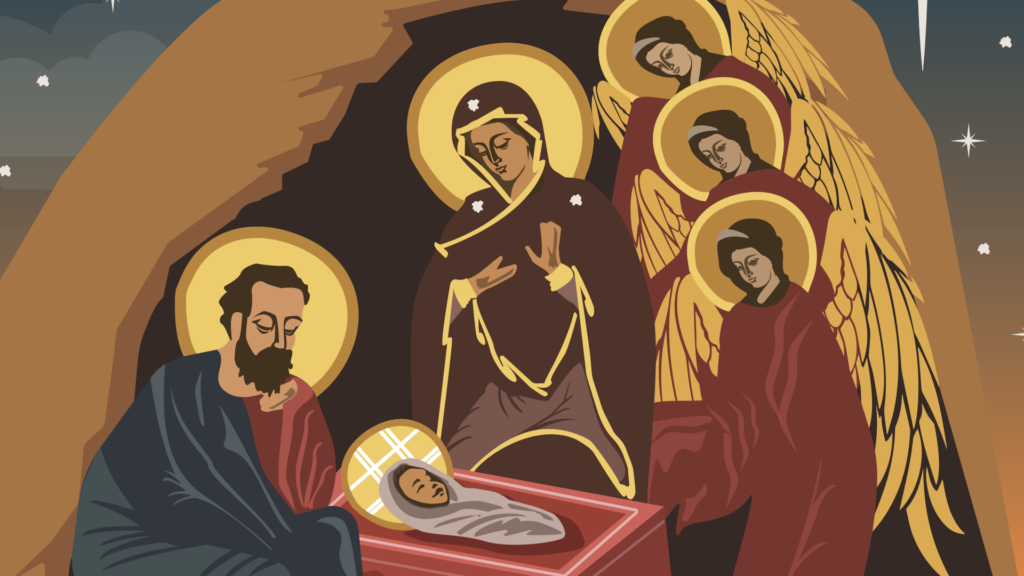By calling a group of twelve men, Jesus was telling us that we need fraternity. The early disciples show us that we can’t fulfill the mission God has given us on our own. This hasn’t changed throughout Church history, as the saints received needed support from friends and fellow workers in the vineyard. Here are some examples.
Sts. Peter and Paul: Peter was given the mission to feed the flock by Jesus, making him chief shepherd of the Church, while Paul was sent to the nations, becoming the great voice calling the Gentiles to God. Paul respected the authority of Peter, coming to Jerusalem for his blessing, but was also willing to correct him when he acted hypocritically toward converts in the presence of Jews. This is an important part of spiritual friendship. Their complementary missions were fused together in a common martyrdom in Rome under Emperor Nero, making Rome the center of the Catholic Church.
Sts. Cosmas and Damian: Twin brothers, martyred in Syria under the Emperor Diocletian around 303, they were known for practicing medicine for the poor. They witnessed to Christ in their charity toward those in need and then again in their death together. This is what Christian brotherhood is all about: spurring one another on in good works and to courage in the face of trials.
Sts. Basil and Gregory Nazianzus: These fourth-century bishops developed one of the strongest friendships in the history of the Church. Both from Cappadocia, Asia Minor, they became fast friends studying in Athens and later emerged as key allies in the fight against Arianism. Here is Gregory’s moving account of their Christian friendship:
When, in the course of time, we acknowledged our friendship and recognized that our ambition was a life of true wisdom, we became everything to each other: we shared the same lodging, the same table, the same desires the same goal. Our love for each other grew daily warmer and deeper. The same hope inspired us: the pursuit of learning. This is an ambition especially subject to envy. Yet between us there was no envy. On the contrary, we made capital out of our rivalry. Our rivalry consisted, not in seeking the first place for oneself but in yielding it to the other, for we each looked on the other’s success as his own. We seemed to be two bodies with a single spirit. Though we cannot believe those who claim that everything is contained in everything, yet you must believe that in our case each of us was in the other and with the other. Our single object and ambition was virtue, and a life of hope in the blessings that are to come; we wanted to withdraw from this world before we departed from it. With this end in view we ordered our lives and all our actions. We followed the guidance of God’s law and spurred each other on to virtue. If it is not too boastful to say, we found in each other a standard and rule for discerning right from wrong.
Sts. Augustine and Alypius: Augustine is much more famous than his friend Alypius, a fellow native of Thagaste (modern-day Algeria) who eventually became bishop of the city. Augustine and Alypius both studied in Carthage, moved to Rome for their careers, and wound up in Milan, the center of the Western Empire, where they joined a group of young men passionate about finding the truth. Alypius, whom Augustine called a “brother of my heart,” was there with him at the moment of his conversion, taking the letters of Paul from Augustine’s hands after he surrendered to God to find his own encouragement in it. Alypius was baptized with Augustine and returned with him to Africa to become a monk, but both men would be pulled into the service Church as bishops.
Sts. Maurus and Placid: These monks were the two main disciples of St. Benedict, the great father of monks, and share the same feast day on January 15th. Both were offered as child oblates by the parents, meaning they were entrusted to St. Benedict for their education and to become monks. Maurus was the older of the two and later became a missionary to Gaul (France). Placid was from a patrician family and his father donated the land where Benedict would found his main abbey at Monte Cassino. The most famous story connecting them stems from an accident when the young Placid fell into a lake. Benedict ordered Maurus to rescue him, and he immediately ran out and, without even realizing it, ran over the top of the water to find Placid. Benedict told him that the miracle stemmed from his instant monastic obedience. With faith, that is what friends can do.
Are you looking for stronger brotherly support? Join men from all over the world for four days of prayer, adventure, and fraternity all in the awe-inspiring setting of the Rocky Mountains! Register for the Freedom Summit now . . . before it’s too late.
Dr. Staudt serves as Director of Content for Exodus and as an Instructor for the Lay Division of St. John Vianney Seminary. He is the author of How the Eucharist Can Save Civilization (TAN), Restoring Humanity: Essays on the Evangelization of Culture (Divine Providence Press) and The Beer Option: Brewing a Catholic Culture Yesterday & Today (Angelico Press). He holds a Ph.D. in systematic theology from Ave Maria University and B.A. and M.A. in Catholic Studies from the University of St. Thomas (St. Paul, MN). He and wife, Anne, have six children and he is a Benedictine oblate.

